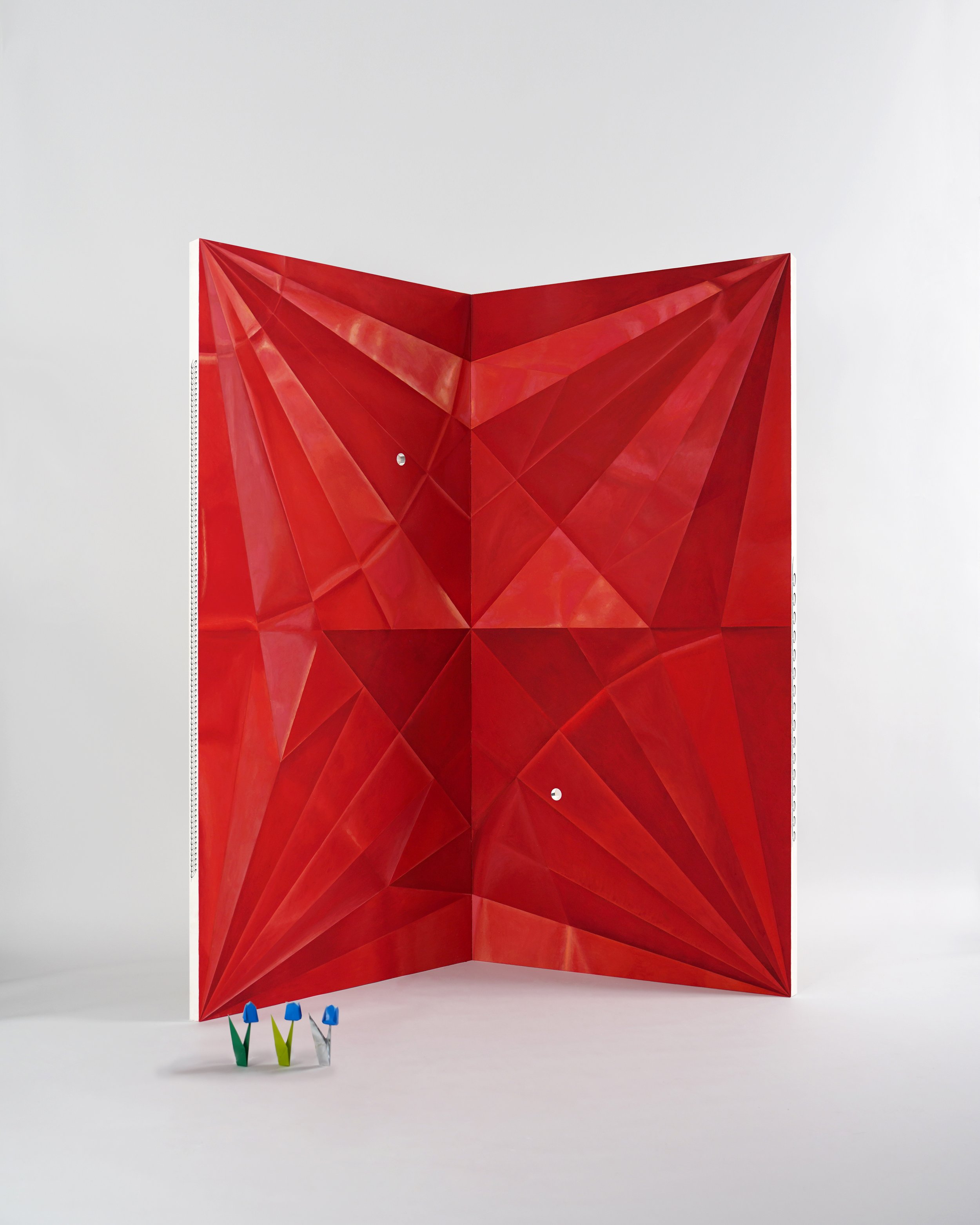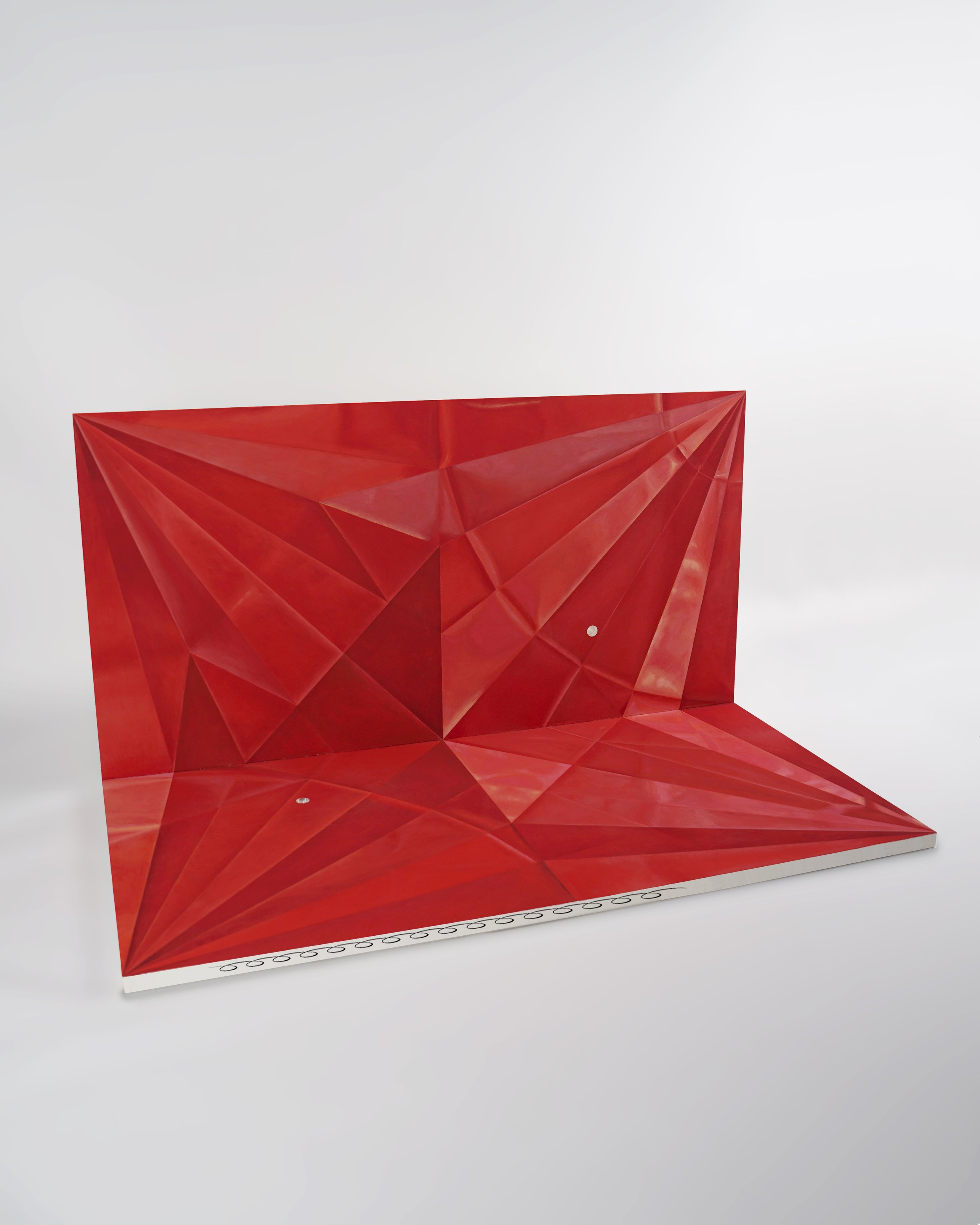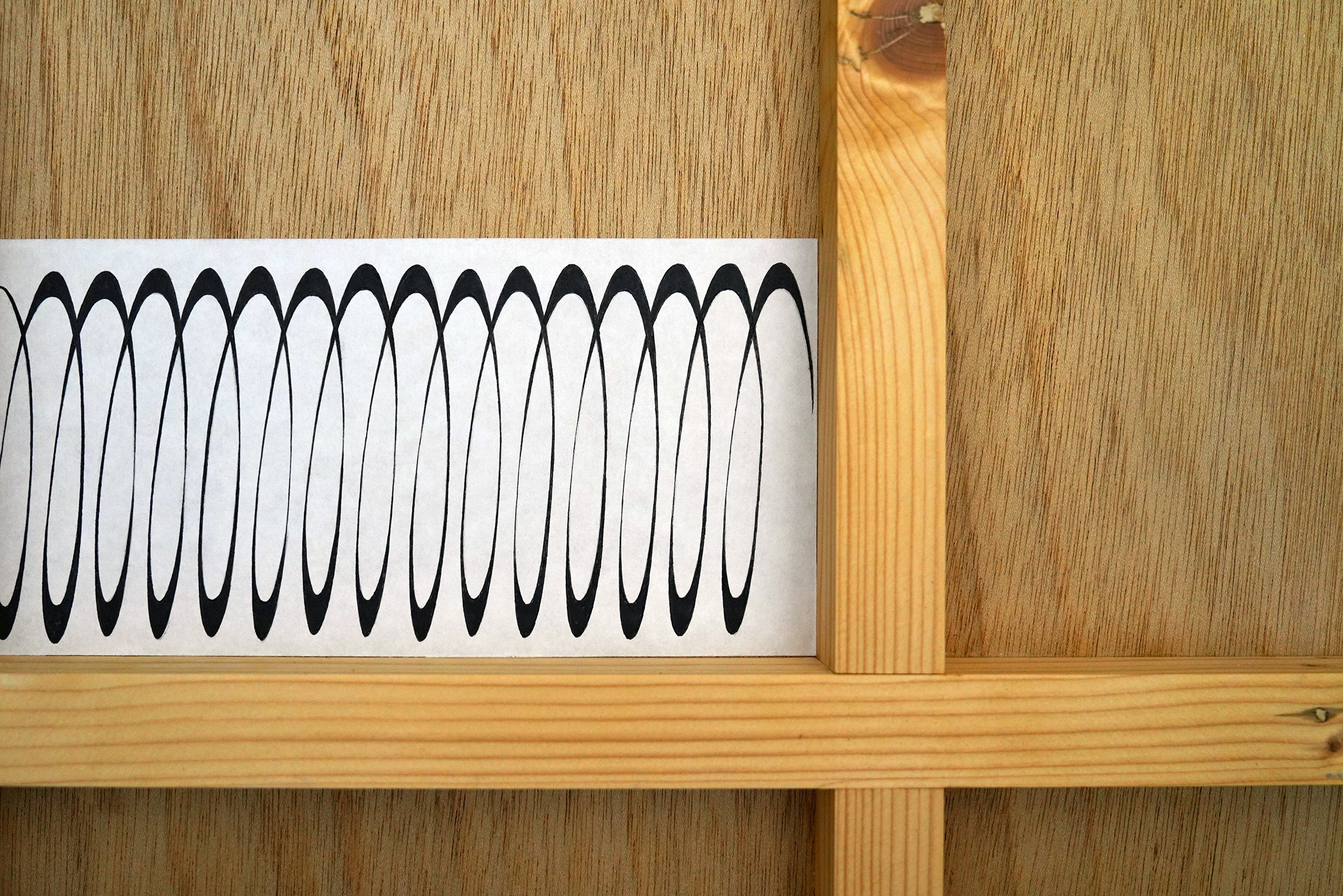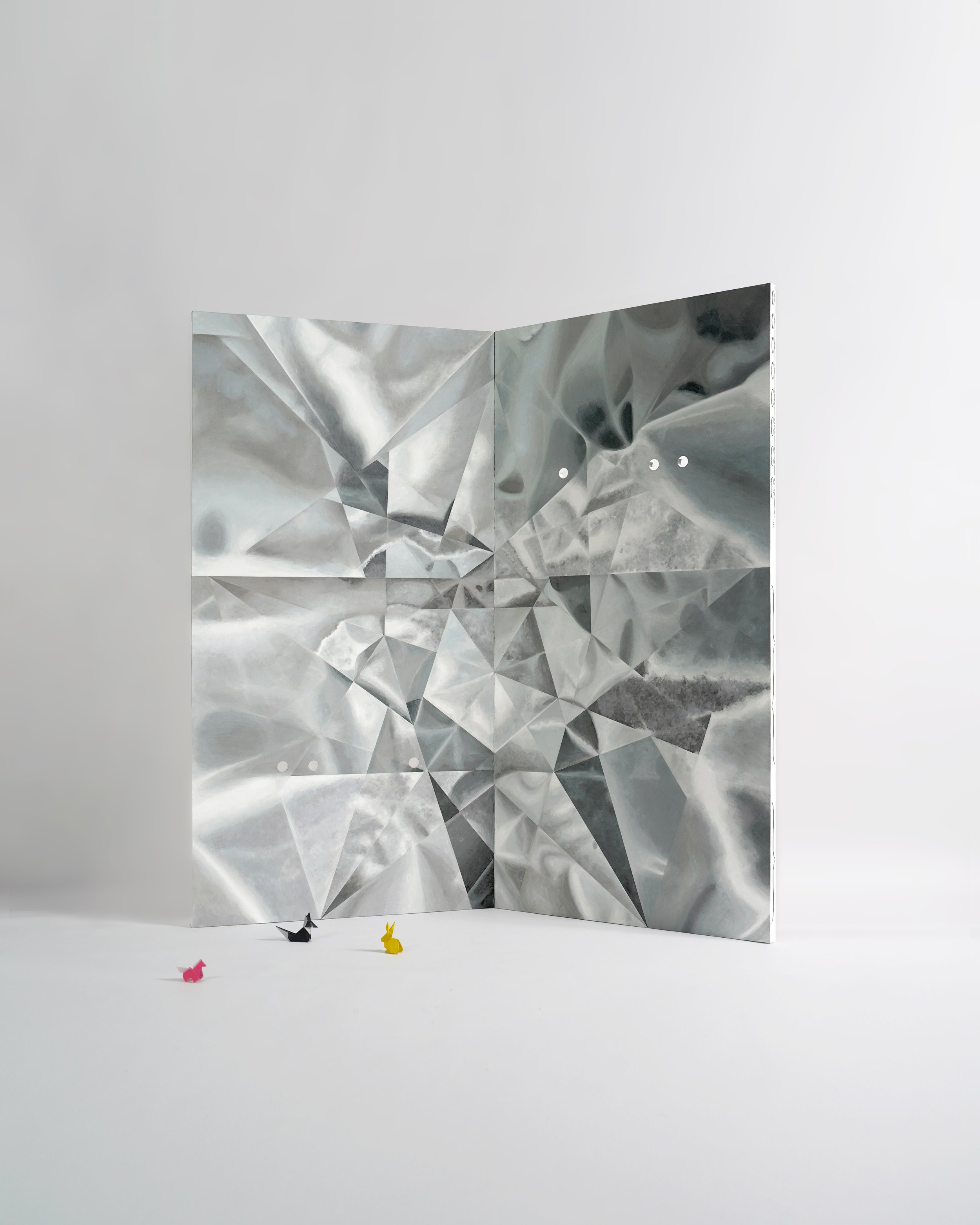Bases of Games
A Failed Simulation of Origami
《 遊戲的基礎 : 摺紙的失效模擬 》
此系列從歷久不衰的遊戲中探索「感到好玩」的意義。「感到好玩」是種極為私人的體驗,不只是愉悅,更是貼近自己本質的瞬間。
我們一邊熱愛規則,一邊又怕無趣,但首先,我希望你玩的愉快。
Bases of Games — A Failed Simulation of Origami
explores what it means to "feel interested" through the lens of timeless games.
"Feeling interested" is a deeply personal experience. It’s more than pleasure or joy—it’s a moment when we feel closer to our essential selves.
We love rules, but we hate dull ones. Welcome. It’s dangerous to go alone—take this moment, and play well.



Details









A FAILED SIMULATION OF PAPER CRANE
《 紙鶴的失效模擬 》
172.3 x 176 x 3.7 cm, wood and cotton base, Gouache painting, 2025




Details





A FAILED SIMULATION OF THE STARRY SKY
《 星空的失效模擬 》
172.3 x 176 x 3.7 cm, wood and cotton base, Gouache painting, 2025
-
《遊戲的基礎:摺紙的失效模擬》
作品是一張攤開的紙鶴、一幅對折的繪畫,也是一座帶有窺視孔的立式屏風。摺紙、繪畫、屏風曾是我們模擬現實、理解世界的工具。然而,作品將三者融合,讓它們的語境在彼此的重疊中失效了。
摺紙不再指向具體形象,繪畫不再構築視覺幻象,屏風也不再提供隱蔽。因「疊加」而產生的「失效」,反映了人們對於新奇、與重新定義的偏愛。攤開的摺紙,它遊戲性的轉變,象徵著觀眾對形象的開闊預期。我們不再滿足於對現實的模擬,而更傾在資訊流的疊加中,交織折射出的現實。
所有「遊戲」都蘊含著對規則與挑戰的提問:我們為什麼願意接受這些設定?又為什麼它們能帶來快樂?
我將遊戲中「感到好玩」的時刻,視為一種認知的顯影,它透露了我們如何理解世界、和傾向甚麼行為模式。在閃耀追求新意的時代中,以摺紙遊戲去再定義熟悉之物時的我們的思維痕跡,以及藏在純粹快樂中,專屬於個人的意義。
Bases of Games — A Failed Simulation of Origami
This work is an unfolded origami, a folded painting, and a freestanding screen with a peephole. Origami, painting, and folding screens were once tools through which we simulated reality and made sense of the world. But by merging all three, I have allowed their contexts to collapse upon each other and, in doing so, to fail.
Origami no longer points to a specific form, painting no longer constructs visual illusions, and the screen no longer offers concealment. The “failure” born from “superimposition” reflects our contemporary preference for novelty and for redefining the familiar. The game of unfolded origami—its shift in playfulness—symbolizes the audience’s widened expectations for image. We are no longer satisfied with simulation of reality; instead, we are drawn to the layered flows of information, and the refracted realities that emerge from their intersections.
Every “game” contains an inquiry into its own rules and challenges: Why are we willing to accept these constructs? And why do they bring us joy?
I see the moments in play when we feel something is “fun” as cognitive revelations—snapshots that reveal how we understand the world and our patterns of behavior. In this dazzling, ever-renewing era, I use the origami game to trace our mental imprints when redefining the familiar, and to illuminate the personal meanings that arise within the pure experience of joy.
